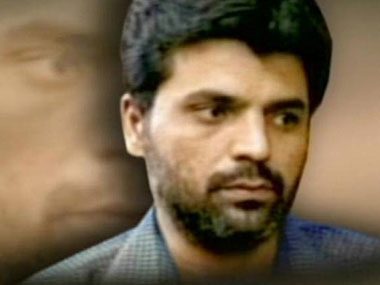NEW DELHI (TIP)
The next day, one day before his slated hanging of Yakub Memon filed a fresh mercy plea with the President of India at 11 am. The same day at 4.30 pm, a three member bench of the Supreme Court dismissed his petition and at 5.30 pm, the mercy petition filed with the President is sent to the Union Home Ministry as per the usual procedure. Yet another mercy petition filed by him before the Maharashtra Governor is also rejected.
At 9 pm, union Home Minister Rajnath Singh personally takes the file and goes to meet President Pranab Mukherjee to discuss the mercy plea. This meeting is also attended by Home Secretary L C Goyal and Solicitor General Ranjit Kumar.
At 11 pm, President Pranab Mukherjee rejects the mercy plea. This paved the way for Yakub Memon to hang at 7 am at the Nagpur Jail.
The Midnight Drama
Several lawyers including Prashant Bhushan, Anand Grover, Vrinda Grover, Nitya Ramakrishnan and Yug Choudhary representing Yakub Memon reached the residence of CJI Dattu seeking a stay on the execution. Citing a Supreme Court judgement in the Shatrughan Chouhan VS Union of India case, a fresh petition was filed with the CJI seeking at least a 14 day clear gap between the rejection of mercy petition of the convict and the hanging. The registrar of the Supreme Court also reached the CJI’s residence and in an unprecedented and remarkable move, the CJI agreed to hear the plea that very night.
He constituted a three member bench which had earlier in the day rejected the plea. Perhaps for the first time ever a court room in the Supreme Court was opened at 3 am to hear the plea.
At 3 am, Attorney General Mukul Rohatgi entered court room no.4 and the hearing began. Yakub Memon’s lawyers argued that the earlier mercy plea was filed by his brother, today’s plea was his own. Since the plea has been rejected today, the mandated 14 day period before the hanging must begin today. The Attorney General stressed that multiple mercy petitions were an abuse of the system.
The bench finally dismissed the petition around 5 am and Yakub Menon was hanged les than an hour and a half later at Nagpur this closing a sad chapter in the history of the country.
While the eleventh hour opportunity given by the Supreme Court is seen as an example of the judiciary in the country opening its doors even for a last minute plea, the decisive stand taken by the Narendra Modi government on the rejection of Yakub Memon’s mercy petition has sent out a clear message that the government would come down with a heavy hand in dealing with terrorists.
What may have pushed the government to act swiftly is the absolute lack of repentance expressed by Yakub and his family members for the Mumbai terror attacked which snuffed out so many innocent lives and maimed hundreds of others who continue to suffer since then.
Although the date of hanging, which coincided with Yakub’s birthday, may not be preplanned but the timing of the hanging just a couple of days after the terror attack near Gurdaspur and a couple of weeks before the Independence Day has sent out a strong message that the Modi government meant business.
The hanging has, however, kicked up a controversy whether his hanging was justified particularly in view of reports that he had himself turned himself over to the authorities and that there was some kind of “deal” that was agreed upon before he came to India. His lawyers claimed there was an understanding while a former RAW officer too wrote that it was a surrender with conditions that he would not be awarded the capital punishment.
The government and several other officers who had dealt with his case have denied there was a deal. They said he was detained when he was about to board a flight back to Dubai after consulting his lawyers. They say there can be no understanding with terrorists and their supporters. The fact that he was himself not directly involved with the bombings has also been rubbished by the government on the ground that he was aware of the conspiracy and had actively helped the perpetrators of the crime.
Another debate that is raging in the light of Yakub’s hanging is whether the death penalty should be abolished as it leaves no remedy if any new evidence surfaces. Most commentators, however, say that this was not the right time to discuss the issue.
Incidentally the courts in India have awarde death penalty in over 1000 cases since the independence but very few have been sent to the gallows. Among the prominent who were hanged were the assassin of Mahatma Gandhi, the killers of Indira Gandhi and two rapists and killers Billa and Ranga.
Those pleading for mercy for Yakub had also pointed out that though the incidents relating to the assassination of Rajiv Gandhi and the Sikh massacre had taken place much earlier, no accused has been hanged for the crimes. They also pointed out that all the three hanged in the last decade – Yakub, Afzal Guru and Afzal Kasab -belonged to a particular community.
But there is a counter argument too – only five per cent of those awarded the death sentence since the Independence belonged to that community.
